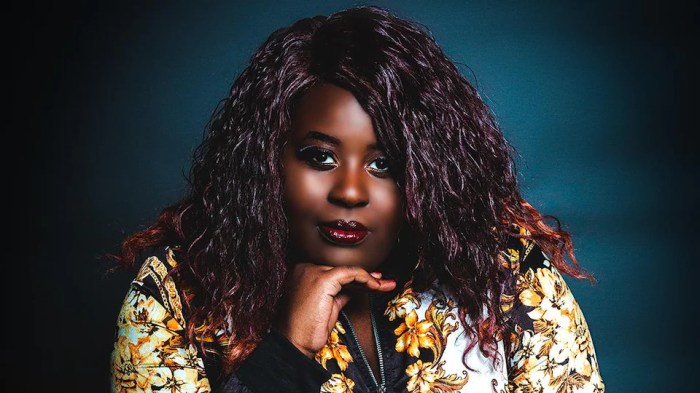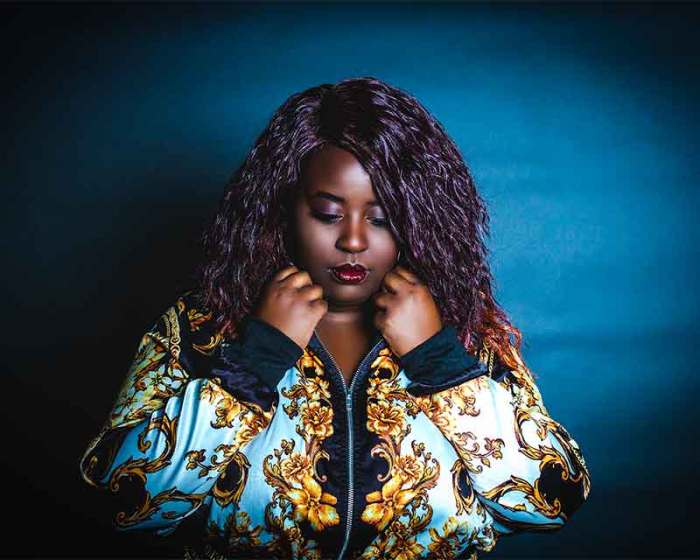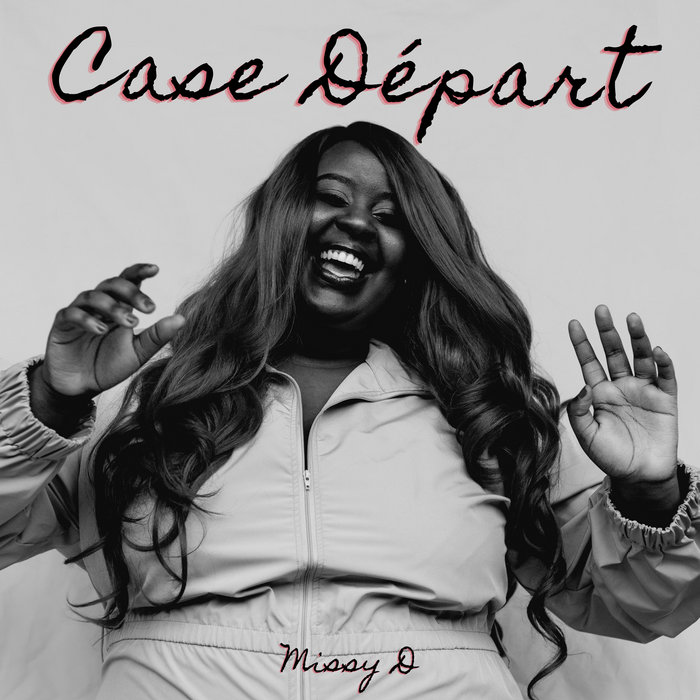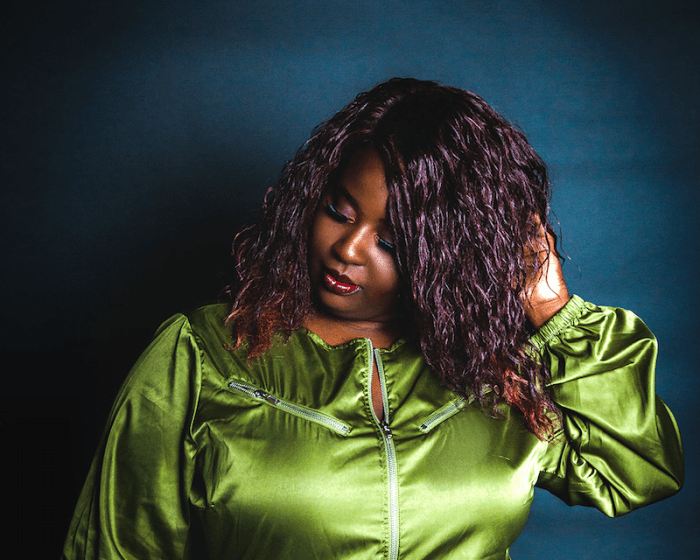Missy d case départ lyrics – In the realm of hip-hop, Missy Elliott’s “Case départ” stands as a lyrical masterpiece that transcends musical boundaries and provokes profound reflection. With its unique blend of hip-hop, R&B, and soul elements, the song delves into themes of identity, empowerment, and social commentary, leaving an indelible mark on popular culture.
Missy Elliott’s artistry shines through in her innovative use of samples, loops, and instrumentation, creating a sonic tapestry that captivates listeners. The song’s lyrical depth, rich with wordplay, metaphors, and symbolism, conveys a powerful message of self-expression and empowerment, particularly for marginalized communities.
Missy Elliott’s Artistic Style in “Case départ”

Missy Elliott’s “Case départ” is a masterpiece that showcases her unique blend of hip-hop, R&B, and soul elements. The song’s distinct sound is a result of her innovative use of samples, loops, and instrumentation.
One of the most striking features of “Case départ” is its use of samples. Elliott incorporates a wide range of samples from various sources, including funk, soul, and even classical music. These samples are often chopped up and rearranged in unexpected ways, creating a sense of disorientation and excitement.
Loops and Instrumentation
In addition to samples, Elliott also makes extensive use of loops and instrumentation in “Case départ.” The song’s driving beat is created by a combination of drum loops and live drums. Elliott also incorporates a variety of instruments, including keyboards, guitars, and strings.
These elements come together to create a rich and textured soundscape that supports Elliott’s powerful vocals.
Innovative Production Techniques
Missy Elliott and Timbaland, her long-time collaborator, are known for their innovative production techniques. In “Case départ,” they employ a variety of techniques to create a sense of urgency and excitement. These techniques include the use of syncopated rhythms, sudden tempo changes, and distorted vocals.
Lyrical Themes and Social Commentary

Missy Elliott’s “Case départ” is a lyrical tapestry that explores themes of identity, empowerment, and self-expression. Through wordplay, metaphors, and symbolism, the song conveys a powerful message about the challenges and triumphs faced by individuals, particularly those from marginalized communities.
The lyrics to Missy D’s Case Départ evoke a sense of longing and departure, like embarking on a journey with an uncertain destination. Just as these lyrics invite reflection on the past and anticipation of the future, blank slate game cards provide a fresh start for storytelling and imaginative play.
They offer a blank canvas for creating new narratives and exploring possibilities, much like the open road that Missy D sings about in Case Départ.
Exploration of Identity and Empowerment
- Elliott’s use of the term “case départ” (French for “starting point”) symbolizes the ongoing struggle for self-definition and the need to reclaim one’s identity in the face of societal pressures.
- The song’s lyrics empower listeners to embrace their uniqueness and defy societal expectations, as seen in the lines, “I’m not your average girl from your video/And I ain’t built like the girls in your magazine.”
- Elliott’s assertive tone and confident delivery serve as a rallying cry for self-love and acceptance.
Social Commentary on Race and Gender
- The song’s references to “brown sugar” and “black diamonds” highlight the intersectionality of race and gender, addressing the unique challenges faced by women of color in a society that often marginalizes them.
- Elliott’s use of metaphors like “a diamond in the rough” and “a star that shines” subverts traditional beauty standards and celebrates the beauty and strength of those who may not conform to societal norms.
- “Case départ” has sparked important conversations about representation and the need for greater inclusivity in media and society at large.
Musical Structure and Arrangement
Missy Elliott’s “Case départ” showcases a complex and engaging musical structure that combines elements of hip-hop, R&B, and soul.
Verse-Chorus-Bridge Form
The song follows a traditional verse-chorus-bridge form, with two verses, a chorus, and a bridge.
- Verse 1:Introduces Missy Elliott’s personal experiences and struggles.
- Chorus:Expresses her determination to overcome obstacles and reclaim her identity.
- Verse 2:Further elaborates on her journey of self-discovery and empowerment.
- Chorus:Repeats the message of resilience and self-acceptance.
- Bridge:Provides a reflective moment, exploring themes of identity and belonging.
- Chorus:Returns to the empowering message, concluding the song.
Repetition, Contrast, and Dynamics
Repetition plays a crucial role in creating a cohesive musical experience. The chorus is repeated twice, reinforcing its message of self-empowerment.
Contrast is achieved through the juxtaposition of different sections. The verses are introspective and personal, while the chorus is more energetic and uplifting. This contrast builds tension and releases it, keeping the listener engaged.
Dynamics are also used effectively. The song begins softly with the first verse, gradually building in intensity as the chorus approaches. This dynamic shift creates a sense of anticipation and excitement.
Interplay of Vocals, Instrumental, and Backing Vocals
Missy Elliott’s vocals are the driving force of the song, delivering her lyrics with both power and vulnerability.
The instrumental provides a solid foundation, featuring a blend of hip-hop beats, R&B harmonies, and soul-infused melodies.
Backing vocals add depth and texture to the song, supporting Missy Elliott’s lead vocals and reinforcing the message of empowerment.
Cultural and Historical Context

Missy Elliott’s “Case départ” was released in 2003, marking a pivotal moment in her career and the broader hip-hop landscape. This era witnessed a resurgence of female rappers, with Elliott leading the charge as a trailblazing artist who challenged gender norms and pushed creative boundaries.
Song’s Impact on Popular Culture
- The song became a global hit, topping charts worldwide and solidifying Elliott’s status as a global superstar.
- Its unique blend of hip-hop, R&B, and world music influences resonated with a diverse audience, expanding the reach of hip-hop beyond its traditional boundaries.
- “Case départ” also garnered critical acclaim, winning numerous awards and accolades, including the MTV Video Music Award for Video of the Year.
Cultural and Social Influences
The song’s creation was influenced by various cultural and social factors:
- Elliott’s personal experiences as a woman of color navigating the music industry.
- The growing awareness of social and racial inequality in the United States.
- The rise of globalized music and the increasing interconnectedness of cultures.
Enduring Legacy
“Case départ” continues to be celebrated as a groundbreaking work that has left an enduring legacy in popular culture:
- It remains a staple of hip-hop playlists and is considered one of the most influential songs of the early 2000s.
- Elliott’s innovative approach to music and her fearless self-expression have inspired generations of artists.
- The song’s message of empowerment and resilience continues to resonate with audiences today.
Comparative Analysis with Other Missy Elliott Songs

Missy Elliott’s discography is vast and diverse, encompassing various styles and themes. “Case départ” stands out as a unique and significant entry within her catalog. In this section, we will compare it to other notable songs from her repertoire, examining similarities and differences in terms of style, themes, and impact.
“The Rain (Supa Dupa Fly)”
Released in 1997, “The Rain (Supa Dupa Fly)” is one of Missy Elliott’s most iconic and recognizable hits. It shares similarities with “Case départ” in its energetic and infectious beat, driven by a blend of hip-hop and R&B influences. Both songs showcase Missy Elliott’s signature vocal style, characterized by its versatility, rapid-fire delivery, and playful use of ad-libs.
However, “The Rain (Supa Dupa Fly)” is more upbeat and celebratory in tone, while “Case départ” is more introspective and socially conscious.
“Get Ur Freak On”
Another Missy Elliott classic, “Get Ur Freak On” (2001), is known for its experimental and groundbreaking sound. It features a hypnotic, repetitive beat and Missy Elliott’s distinctive, otherworldly vocals. While both “Case départ” and “Get Ur Freak On” demonstrate Missy Elliott’s innovative approach to music, they differ significantly in their subject matter.
“Get Ur Freak On” is a celebration of individuality and self-expression, while “Case départ” delves into deeper social and political issues.
“Pass That Dutch”, Missy d case départ lyrics
Released in 2003, “Pass That Dutch” is a collaboration between Missy Elliott and Timbaland. It became a global hit and is considered one of Missy Elliott’s most successful songs. Both “Pass That Dutch” and “Case départ” showcase Missy Elliott’s ability to create catchy and memorable hooks.
However, “Pass That Dutch” is more focused on partying and having a good time, while “Case départ” is more serious and thought-provoking.
Overall Trajectory
Within Missy Elliott’s overall artistic trajectory, “Case départ” represents a significant departure from her previous work. It is a more mature and socially conscious song that reflects her personal growth and evolution as an artist. While Missy Elliott has always been known for her innovative and boundary-pushing music, “Case départ” stands out as a testament to her depth and versatility as a songwriter and performer.
Impact on Hip-Hop and Popular Music
Missy Elliott’s “Case départ” left an undeniable mark on hip-hop and popular music, becoming a catalyst for innovation and challenging the genre’s conventions.
Elliott’s groundbreaking approach, characterized by experimental beats, futuristic aesthetics, and empowering lyrics, pushed the boundaries of hip-hop, introducing a fresh perspective and inspiring a new generation of artists.
Influence on Female Artists
- Empowered female rappers: Elliott’s success as a female artist in a male-dominated genre inspired and paved the way for other female rappers, encouraging them to pursue their own musical paths.
- Broke down barriers: By showcasing her unique style and confidence, Elliott challenged stereotypes and broke down barriers, proving that women could be just as successful and influential in hip-hop as men.
Impact on Music Production
- Innovative sound: Elliott’s collaboration with producer Timbaland resulted in a groundbreaking sound that fused hip-hop, R&B, and electronic elements, influencing the direction of music production.
- Experimental beats: Elliott’s willingness to experiment with unconventional beats and rhythms inspired other producers to explore new sonic possibilities.
Contributions to Hip-Hop Culture
- Expanded the genre: “Case départ” demonstrated the versatility and adaptability of hip-hop, proving that it could encompass a wide range of styles and influences.
- Influenced future artists: Elliott’s innovative approach inspired a new generation of hip-hop artists, shaping the sound and direction of the genre in the years to come.
FAQ Summary: Missy D Case Départ Lyrics
What is the significance of the title “Case départ”?
The title refers to the French phrase meaning “starting point” or “back to square one,” highlighting the song’s exploration of identity and the cyclical nature of social challenges.
How does Missy Elliott use wordplay in the lyrics?
Elliott employs clever wordplay and double entendres throughout the song, such as “I’m so fly, I can’t even land” and “I’m a diamond in the rough, but I’m still a diamond,” to convey her message of self-confidence and resilience.
What is the cultural impact of “Case départ”?
The song has been praised for its positive representation of Black women and its exploration of social issues, contributing to conversations about race, gender, and the importance of self-empowerment.